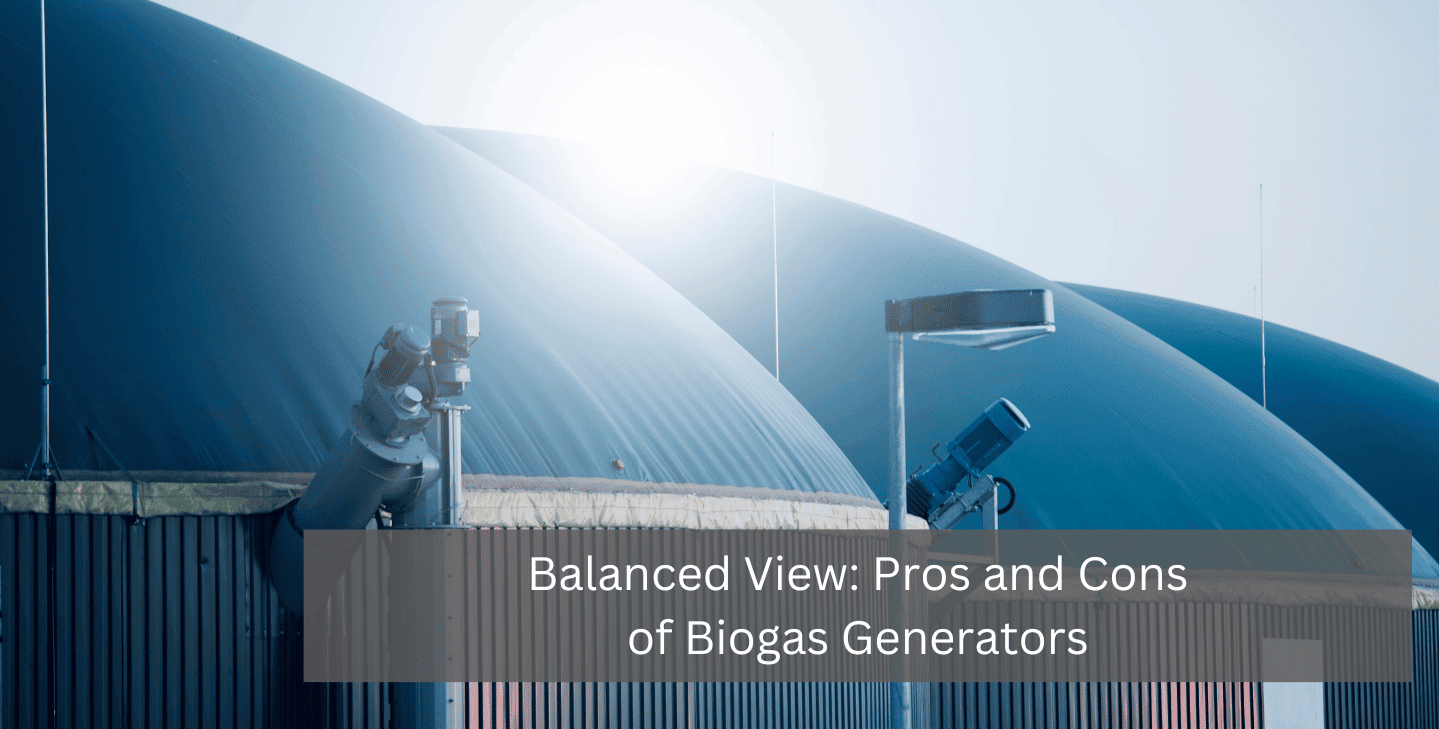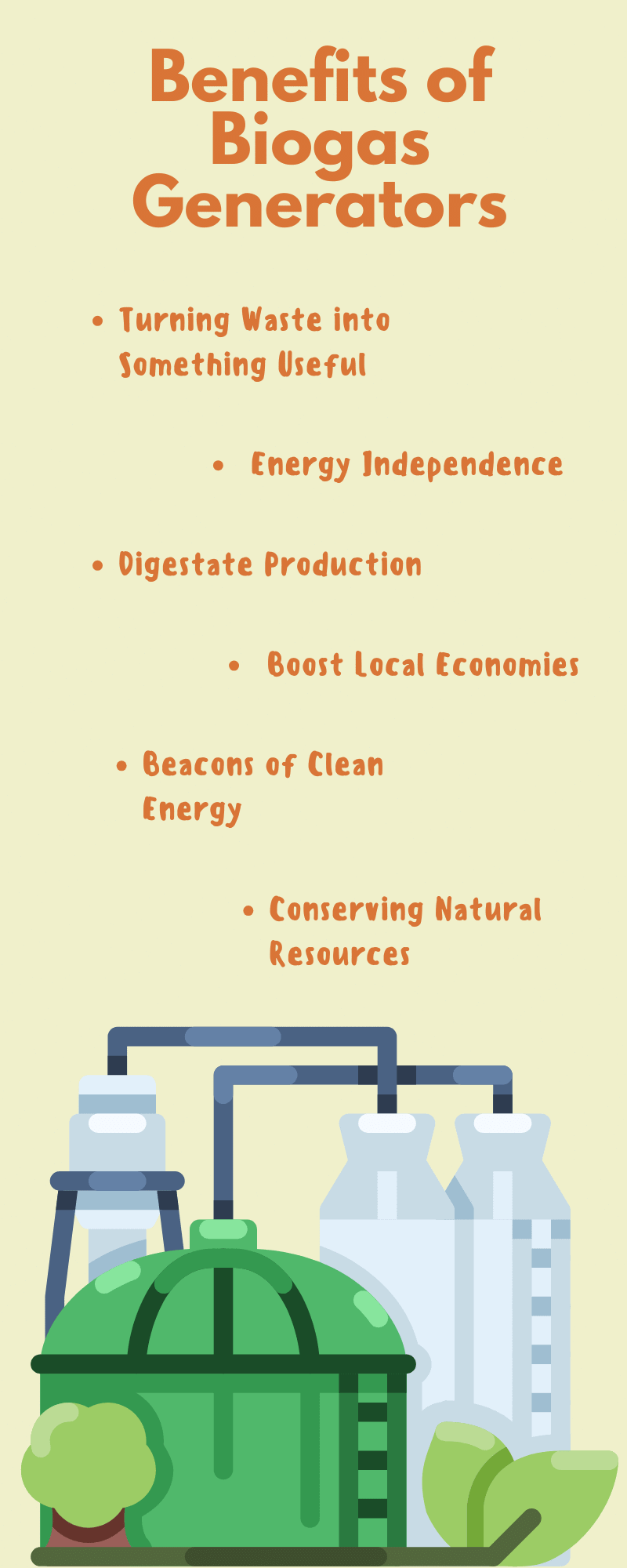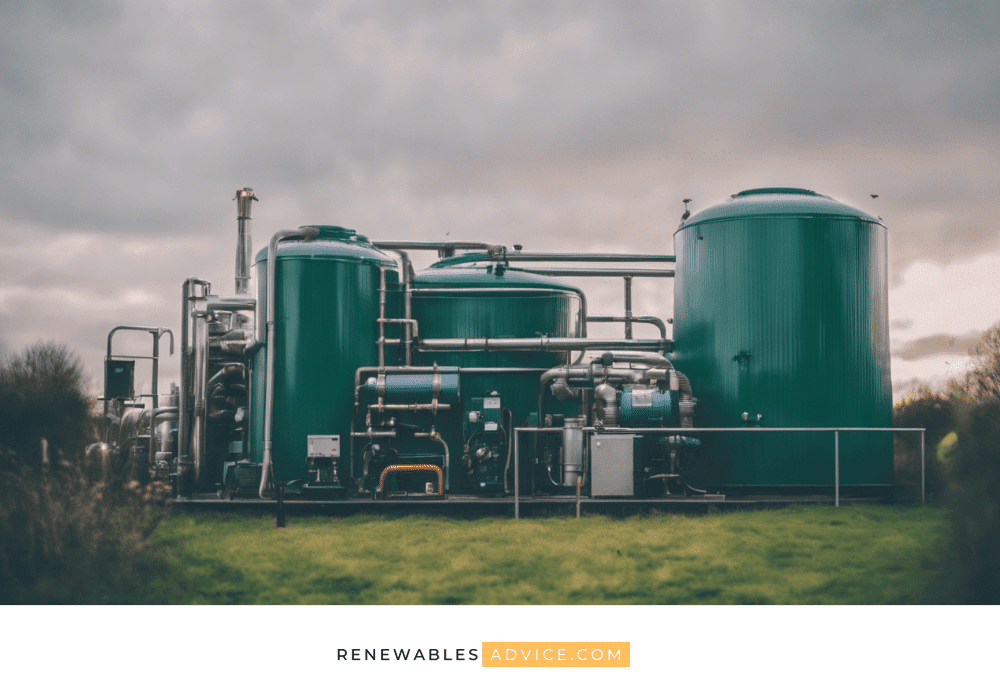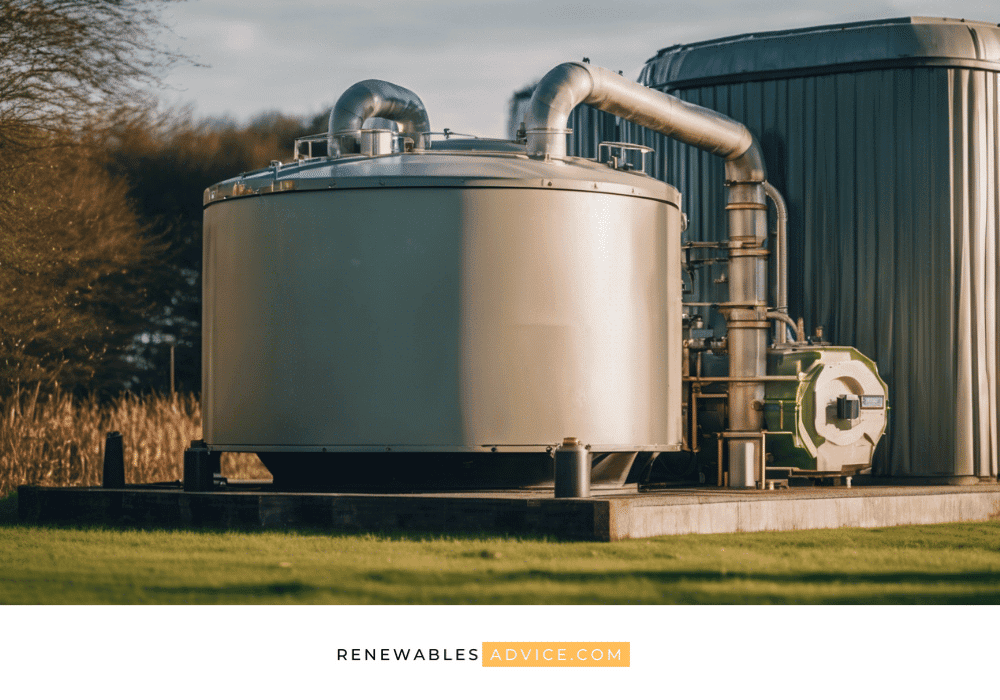Balanced View: Pros and Cons of Biogas Generators
Balanced View: Pros and Cons of Biogas Generators
Balanced View: Pros and Cons of Biogas Generators

Exploring the pros and cons of biogas generators offers a comprehensive look into a technology that's reshaping our approach to energy and waste management. Biogas generators are not just machines; they're a testament to human ingenuity, transforming organic waste into a sustainable energy source. Looking into this topic, we'll uncover how these systems work, their benefits in creating clean energy and managing waste, and the challenges they present. This balanced exploration aims to provide you with a clear understanding of biogas generators' role in our quest for renewable energy solutions.
Key Takeaways
- Sustainable Energy and Waste Management: Biogas generators are lauded for their ability to convert organic waste into renewable energy, offering a dual benefit of managing waste effectively while producing clean energy. This process not only reduces landfill use but also mitigates methane emissions, contributing to environmental conservation and energy diversification.
- Economic and Operational Considerations: While biogas generators present a sustainable energy solution, they come with challenges, such as significant initial investments and the necessity for a consistent supply of organic waste. These factors, along with the need for expertise in operation and maintenance, can influence the decision to adopt biogas technology, especially for smaller entities or communities.
- Environmental Impact and Safety: Biogas generators have a positive environmental impact by reducing greenhouse gas emissions and promoting resource conservation. However, they must be managed properly to avoid potential environmental and safety risks, including the proper handling of byproducts and ensuring safe storage and transportation of biogas to prevent accidents.
What Are Biogas Generators?
Biogas generators, often known as anaerobic digesters, are innovative systems that turn organic materials into biogas, a clean energy form. Imagine these systems as nature's own recycling plants, where organic leftovers, like manure and agricultural waste, get a new lease on life. In these digesters, without any oxygen around, these materials break down and magically transform into biogas. This isn't just any gas; it's a mix of methane and carbon dioxide, and it's a game-changer for sustainable fuel.
Consider the biogas generator as a sophisticated alchemist, adeptly transforming waste into wealth. It meticulously processes organic material in an oxygen-deprived environment, converting it into an invaluable resource. This isn't mere waste management; it's a refined procedure where discarded organic matter is ingeniously repurposed into biogas, a testament to sustainable innovation.
For a full description of biogas generators and how they operate, check out our page What are Biogas Generators? A Beginner's Guide.

What Advantages Do Biogas Generators Offer?
Biogas generators offer a myriad of benefits that extend far beyond simple energy production:
A Champion of Waste Management:
Imagine turning what's considered waste into something incredibly useful. That's what biogas generators do! They take organic materials, like leftover farm manure and crop residues, and turn them into biogas. This process not only reduces the pile-up in landfills but also cuts down on methane—a real troublemaker for our atmosphere.
Energy Independence:
Tired of the same old fossil fuel story? Biogas offers a plot twist. It's a step towards energy independence, reducing our old-school reliance on fossil fuels and nudging us towards a more diverse energy portfolio.
Agriculture's New Best Friend:
Here's a win-win: biogas generators produce a byproduct called digestate. It's like gold for farmers—an organic fertiliser that enriches the soil and boosts crop growth. Sustainable farming? Check!
Boosting Local Economies:
Think global, act local, right? By producing energy and fertiliser on-site from organic waste, we're supporting our local economies and cutting down on emissions from transporting these goods. It's all about keeping it in the community.
A Beacon of Clean Energy:
Biogas generators are the unsung heroes of clean energy. They have a smaller carbon footprint compared to traditional energy sources, making them a key player in the fight against air pollution and climate change.
Conservation at Its Core:
By embracing biogas, we're not just generating energy; we're also conserving natural resources and protecting our forests. Less demand for wood and traditional biomass means more trees get to stay rooted, literally.
What Disadvantages Come With Biogas Generators?
There are some challenges and considerations that accompany biogas generators. Here are a few to consider:
Upfront Investment:
Getting started with biogas generators isn't cheap. The initial costs can be a tough pill to swallow, especially for smaller farms or communities. It's a significant investment that demands careful consideration.
Expertise Required:
Diving into biogas isn't just about flipping a switch. It's a complex process that requires a fair bit of know-how and skilled hands. This need for expertise might slow down its embrace far and wide.
Efficiency Questions:
Is every bit of biomass turning into energy gold? There are some raised eyebrows about how efficiently biogas generators convert waste into fuel. It's a question worth pondering.
Demand for Organic Waste:
Biogas generators have quite the appetite for organic waste. But what if the waste isn't there or isn't collected properly? That can throw a wrench in the works, making consistent biogas production a bit of a headache.
Land Use Considerations:
Biogas plants aren't exactly compact. They need their room to breathe, which can lead to some tough calls on land use, especially where space is at a premium.
Environmental Concerns:
While biogas is green, the process isn't without its environmental hiccups. If not managed right, there could be unwanted side effects like water pollution or nasty emissions. The article "Analysing the Impact on Health and Environment from Biogas Production Process and Biomass Combustion: A Scoping Review" in PMC examines the environmental and health impacts of biogas production and biomass combustion. It highlights the potential exposure to harmful substances like endotoxins, fungi, particulate matter, and VOCs, which can affect both biogas plant workers and nearby communities. The review underscores the need for further integrated research combining environmental and health data to fully understand and mitigate the risks associated with biogas technology, ensuring its safe and sustainable implementation (1).
Safety Measures:
Biogas doesn't play nice with sparks or flames. Storing and moving this energy source safely is non-negotiable, requiring strict rules and protocols to avoid any fiery surprises.
Limited Impact on Landfills:
Sure, biogas generators help reduce waste in landfills, but there's a catch. If we're churning out waste faster than we can process it, the impact on landfills might not be as big as we'd hoped.
While biogas generators are a step towards cleaner energy, they come with their own set of challenges that need addressing. It's a journey of balance, weighing the pros and cons, to make the most of this promising technology.

What Are The Pros and Cons of Using Biogas for Energy?
The pros of reshaping waste management and energy production come with practical challenges and investment issues. Here’s a breakdown:
Pros
Renewable Energy Champion:
Biogas isn't just about energy; it's about transformation. This renewable powerhouse takes what we'd normally discard and turns it into something incredibly useful, tackling waste management and energy production all at once.
Stability in Energy Supply:
Biogas provides a consistent and stable energy supply, offering a buffer against the unpredictable nature of fossil fuel markets and standing firm amidst fluctuations in fuel prices and availability.
Emission Reduction:
By trapping methane during anaerobic digestion, it cuts down on one of the nastiest greenhouse gases out there, making a solid dent in our environmental footprint.
Biofertiliser By-product:
After biogas does its thing, it leaves behind digestate, a biofertiliser that's like a superfood for crops. It's a fantastic example of how one process can yield multiple benefits.
Cons
Initial Investment Hurdle:
While biogas has a lot going for it, getting started isn't pocket change. The initial setup requires a hefty investment, which might make smaller operations or resource-limited areas think twice.
Energy Density Consideration:
When it comes to energy density, biogas is a bit more laid back. It doesn't pack the same levels as traditional fuels, meaning we need more of it to get the same energy output, which can be a hiccup for storage and transport.
Dependency on Organic Waste Availability:
Biogas production depends on the availability of organic waste, which can lead to variability and unpredictability in biogas yields.
Navigating the biogas landscape means celebrating its strengths while being savvy about its challenges. It's about making informed choices, understanding the nuances, and appreciating the broader impact of this green energy path.
How Do Biogas Generators Impact the Environment?
Biogas generators are pivotal in transforming organic waste, including manure, into biogas, effectively preventing methane, a potent greenhouse gas, from being released into the atmosphere through landfills. The United States Environmental Protection Agency states that anaerobic digestion (AD) offers significant environmental benefits, including reducing greenhouse gas emissions, managing nutrients to prevent water pollution, and producing renewable energy. AD processes organic materials into biogas, thereby diverting waste from landfills and reducing reliance on fossil fuels.
These generators embody a transition from problem to solution, capturing methane from potentially polluting materials and converting it into clean, usable fuel. This waste-to-energy process not only taps into the latent energy potential of waste but also exemplifies a proactive approach to environmental stewardship. However, the production of biogas is a nuanced process that requires meticulous management to avert any unintended environmental repercussions. It's crucial to oversee this process diligently to ensure that the eco-friendly potential of biogas is fully realised and maintained, underscoring the importance of balance in harnessing biogas's benefits while mitigating potential environmental impacts.

Should You Use Biogas Generators for Your Energy Production Needs?
Biogas generators are a game-changer, turning organic waste into a treasure trove of energy, tackling waste management, and boosting energy production all in one go. They churn out methane, a clean-burning fuel, cutting down our reliance on not-so-friendly fossil fuels and slashing greenhouse gas emissions.
But, diving into the world of biogas isn't just a walk in the park. It comes with its set of puzzles to solve – hefty initial costs and the constant hunt for organic waste to keep the wheels turning. There's also the task of managing the leftovers, like digestate, to dodge any environmental hiccups. And let's not forget, the energy biogas pumps out isn't always a steady stream; it ebbs and flows with the quality and quantity of waste you feed it. Plus, staying ahead with the latest tech upgrades is part of the deal.
Speaking of economics, a study titled "Economic Analysis of Biogas Production via Biogas Digester Made from Composite Material" sheds light on the cost-effectiveness of a biogas digester constructed from composite materials. With an initial investment pegged at USD 1623.41, the digester boasts an internal rate of return (IRR) of 8.5% and a net present value (NPV) of USD 1783.10, presenting itself as an affordable and sustainable option in the biogas arena (2). So, if you're mulling over whether biogas generators fit into your energy landscape and green goals, these are the bits and pieces you'll want to piece together, keeping in mind their economic viability as underscored by recent studies.
FAQ's
A biogas generator is a device that turns organic material like plant leftovers and animal waste into biogas, a type of green energy. It does this through a process called anaerobic digestion, where the waste breaks down without oxygen and produces biogas. This gas, mainly made of methane, can be used for heating, making electricity, or fueling vehicles.
Biogas generators are great because they help manage waste, reduce the amount of trash in landfills, and cut down on methane emissions from rotting waste. They make a clean and renewable type of fuel, help make a type of natural fertiliser from the leftover material, and lessen our need for fossil fuels, which helps lower the overall carbon emissions from energy production.
The downsides include the high cost to get started, the need for a steady amount of waste to keep them running, the space they take up, potential environmental issues if the leftovers aren't handled right, and the challenges in storing and moving the biogas.
Yes, biogas generators are good for the environment because they reduce harmful greenhouse gas emissions by recycling organic waste into energy. This process helps save trees and other natural resources. But, it's important to manage them properly to avoid releasing pollutants during the gas-making process and to think about their entire environmental impact from start to finish.
To figure out if a biogas generator is right for you, consider how much organic waste you have, whether you can afford the setup and maintenance costs, and if you're ready to handle its operation. Think about the benefits and challenges, like how the energy output might change and what upkeep is needed, to decide if it fits with your energy goals and commitment to being eco-friendly.
Conclusion
We've traversed the landscape of this innovative technology, uncovering its potential to revolutionise our approach to energy and waste management. While biogas generators present a sustainable path forward, converting organic waste into renewable energy and offering a suite of environmental benefits, they also pose challenges, including significant initial investments and operational complexities.
As we consider the pros and cons of biogas generators, it's clear that informed decisions are crucial. Whether you're a community leader, a farmer, or an environmentally conscious individual, understanding the nuances of biogas technology is key to harnessing its full potential while navigating its limitations. As we move towards a more sustainable future, biogas generators stand out as a beacon of innovation, offering a balanced solution in our ongoing quest for clean energy and effective waste management.
Reference List
(1) Tamburini M, Pernetti R, Anelli M, Oddone E, Morandi A, Osuchowski A, Villani S, Montomoli C, Monti MC. Analysing the Impact on Health and Environment from Biogas Production Process and Biomass Combustion: A Scoping Review. Int J Environ Res Public Health. 2023 Mar 29;20(7):5305. doi: 10.3390/ijerph20075305. PMID: 37047920; PMCID: PMC10094619.
Research licensed under CC BY 4.0 DEED.
No changes were made to the material.
(2) Obileke, K.; Makaka, G.; Nwokolo, N.; Meyer, E.L.; Mukumba, P. Economic Analysis of Biogas Production via Biogas Digester Made from Composite Material. ChemEngineering 2022, 6, 67. https://doi.org/10.3390/chemengineering6050067
Research licensed under CC BY 4.0 DEED.
No changes were made to the material.
